Music has been one of the top industries to adopt Web3. It’s journey into the domain provides new and interactive ways for artists to earn money from their music and engage with fans. Artists can drop new music at any time without any intermediaries like record labels or gatekeepers which means that the music will go directly to fans and the revenue to the musicians.
After podcast platform Fountain or music streaming service Audius, Spotify is the latest in the industry to adopt Web3.
But what exactly does the integration of Web3 mean for the future of artists and fans alike?
What to expect:
- A new direction: Spotify’s integration of token-enabled playlists could prove a game-changer with regards to the music streaming industry since holders of non-fungible-tokens (NFTs) will be able to connect their Web3 wallets on Spotify to access the specific project’s community-curated playlists.
- Building Communities: The integration of this could give Spotify users a sense of belonging to a unique community, since token holders in communities such as Fluf or Overlord will have access to playlists specific to that group. This in turn could enhance the community experience on Spotify for listeners and NFT holders.
- Setting a blueprint: Listening experiences such as this may become a standard feature on Spotify. This could influence other music streaming platforms to apply a similar strategy with Web3 or NFTs to create token-based playlists based off it’s potential to grow communities and drive engagement.
- Increased Shares: Decentralized music platforms will allow for peer-to-peer sharing of music without the need for a centralized server or platform, helping artists reach new audiences and reduce their overall reliance on regular streaming platforms.
It is yet to be seen how well the service is received by users upon its launch, but Spotify is certainly on an interesting path to discover new methods that will enhance the user experience.
Would you like to be part of a community that plays songs tailored just for you?



What do you think?
Продуманный внешний вид играет важную роль в самовыражении.
Она помогает передать личный стиль и чувствовать себя увереннее.
Аккуратный внешний вид создаёт впечатление окружающих.
В повседневной жизни одежда может придавать уверенность.
https://telegra.ph/Celine-12-25-7
Хорошо подобранная одежда облегчает социальные контакты.
При выборе одежды важно учитывать личные предпочтения и уместность ситуации.
Актуальные стили дают возможность находить новые решения.
В итоге, умение стильно одеваться делает образ завершённым.
оэрн оэрн купить обратиться зарегистрироваться обратиться купить форма купить
оэрн
РФ общество экспертов России по недропользованию купить телефон сделать зарегистрироваться купитьобщество экспертов России по недропользованию
Alright guys, been messing around on pk92game for a bit now. Honestly, it’s pretty decent! The games are fun and the site’s easy to navigate. Give pk92game a whirl!
betmgm sportsbook app https://betmgm-play.com/ betmgm РћРќ